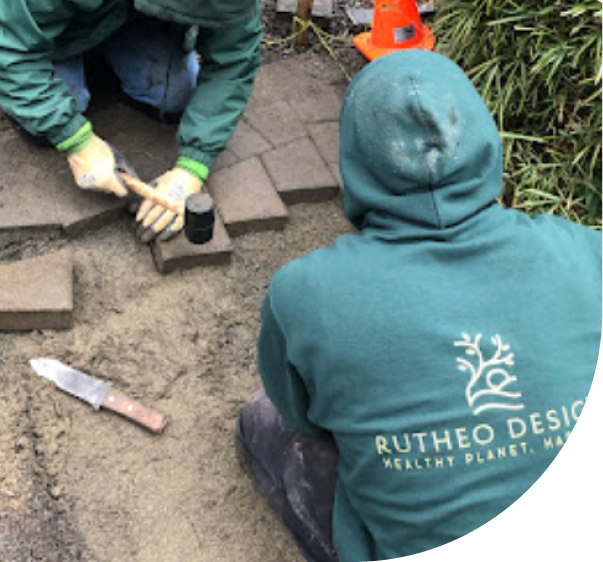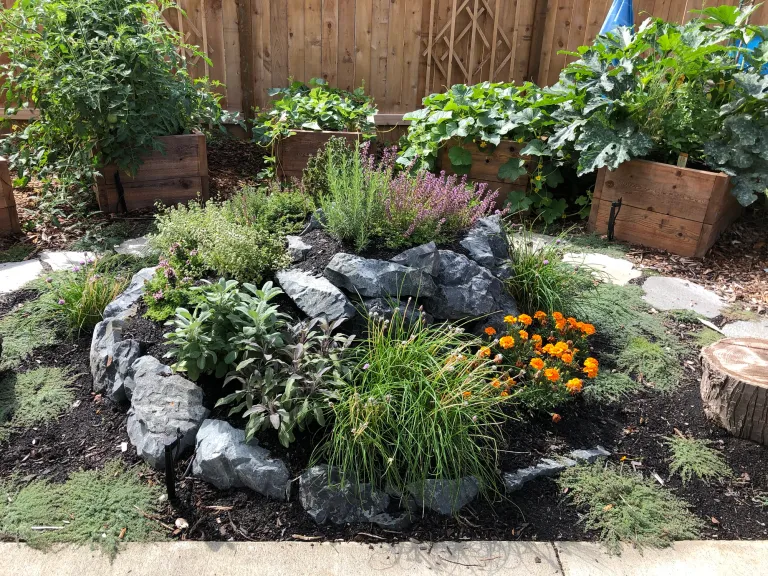
At Rutheo Designs, we believe that choosing the right seeds and plants is essential to creating a sustainable and thriving landscape in Seattle’s unique climate. By focusing on native and climate-adapted species, we help our clients build resilient outdoor spaces that support local biodiversity while minimizing maintenance. Native plants like Oregon grape and red flowering currant are ideal for Seattle’s rainy winters and dry summers, as they require less water and provide essential resources for pollinators and wildlife. We also prioritize heirloom and organic seeds to ensure chemical-free growth and to preserve plant diversity, offering our clients healthier, more environmentally friendly options for their landscapes.
Native plants are species that have naturally evolved in a specific region, adapting to the local climate, soil, and ecosystem. These plants require fewer resources, such as water and fertilizers, making them an essential choice for sustainable landscaping.
By planting native species, we foster a thriving environment for local wildlife, including pollinators, birds, and small mammals. Native plants create habitats and food sources that align with the needs of these species, supporting a balanced and self-sustaining ecosystem.
Native plants are inherently adapted to the local weather conditions, requiring less irrigation and maintenance. By choosing these plants, we reduce water usage and the need for chemical fertilizers, making landscapes both sustainable and eco-friendly.
A diverse selection of plants contributes to a rich ecosystem. By incorporating various species, we help prevent the dominance of invasive plants and create a balanced environment where different organisms can coexist.
Pollinators are crucial for the health of ecosystems and food production. By planting a variety of flowering species, we ensure year-round resources for pollinators, which enhances their populations and supports ecological balance.
Diverse plant selections naturally attract a variety of beneficial insects that act as predators to common garden pests. This reduces the need for chemical pesticides and promotes a healthier, more resilient landscape.
Organic seeds are cultivated without synthetic pesticides or chemical fertilizers, minimizing their impact on the environment. These seeds promote healthier soil and reduce the risk of contaminating local water sources.
Non-GMO seeds are free from genetic modifications, preserving the natural integrity of plants. Using non-GMO seeds ensures that landscapes remain compatible with local ecosystems and reduces potential environmental risks.
We prioritize working with suppliers who share our commitment to sustainability. By sourcing ethical seeds, we ensure high-quality, environmentally responsible products for our projects.
Drought-tolerant plants are designed to thrive with minimal water. By incorporating these plants, we reduce the need for supplemental irrigation, conserving one of our most precious resources.
Seattle’s mild, wet climate is ideal for plants like lavender, sedum, and ornamental grasses. These species require less water once established and offer both beauty and resilience.
Strategic placement of drought-tolerant plants ensures optimal water conservation. Grouping plants with similar water needs enhances efficiency and simplifies maintenance.
Edible plants provide fresh, homegrown produce while reducing the environmental impact of transportation and packaging. This dual-purpose approach supports sustainability and nutrition.
Fruit trees, such as apples and plums, alongside berry bushes and herbs, integrate seamlessly into sustainable landscapes. They add visual appeal while yielding delicious, organic produce.
By mixing edible and ornamental plants, we create functional yet visually striking landscapes. This approach combines beauty with practicality, offering the best of both worlds.

At Rutheo Designs, we are dedicated to transforming your outdoor spaces into beautiful, sustainable landscapes that reflect your vision and the unique character of the Seattle area. We offer services in native plant landscaping, water-efficient irrigation, custom landscape design, and hardscaping solutions tailored to your goals and the local environment. Every project is unique, and we take the time to listen to your needs and offer personalized solutions that align with both your aspirations and Seattle’s natural surroundings.
We invite you to reach out to us to start the conversation about your landscaping needs. You can contact us by email at connect@rutheodesigns.com or give us a call at (360) 844-2989. Whether you have specific questions or are ready to schedule a consultation, we’re eager to help you bring your outdoor vision to life with the care and expertise that Rutheo Designs is known for.